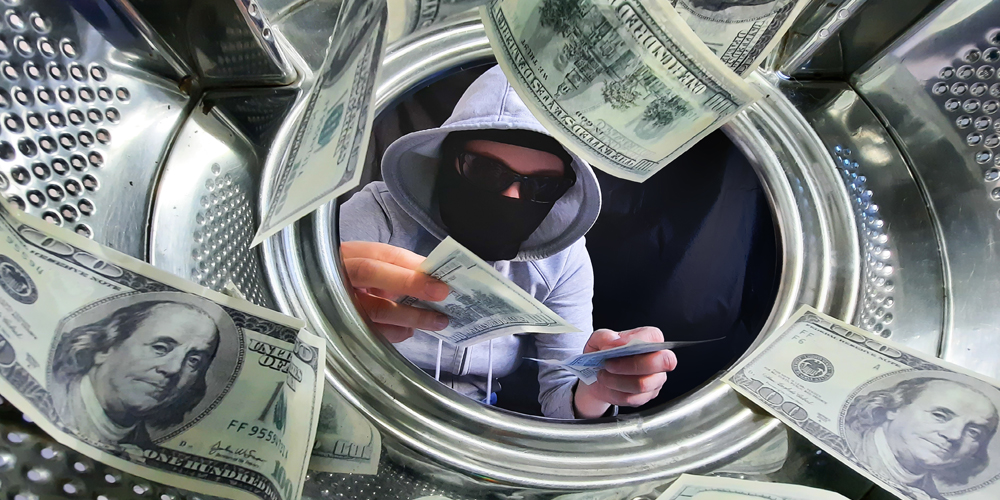

What businesses do you think are front for money laundering?
As an AI language model, I don't have real-time access to specific examples or references. However, I can provide you with a general understanding of industries that have historically been associated with money laundering due to their characteristics. It's important to note that money laundering can occur in any industry, and it would be unfair to assume that all businesses within these sectors engage in such activities. Here are some sectors that have been historically linked to money laundering:
1. Real Estate: Real estate transactions can be used to obscure the origins of illicit funds. Money launderers often purchase properties using illicit funds and then sell them, generating clean money. This process can be further complicated by using shell companies or offshore accounts.
2. Casinos and Gambling: Casinos, especially those with high cash flows, can be used to launder money by exchanging illicit funds for chips or playing games with the funds, and then cashing out with seemingly legitimate winnings.
3. Financial Institutions: Banks and other financial institutions have been involved in money laundering cases due to their ability to facilitate large transactions and move money across borders. Money launderers exploit loopholes, inadequate regulations, or lack of due diligence by these institutions.
4. Cryptocurrency Exchanges: The anonymous nature of cryptocurrencies and their ability to facilitate cross-border transactions quickly has attracted money launderers. Cryptocurrency exchanges can be used to convert illicit funds into digital currencies, making it difficult to trace the origins of the money.
5. Luxury Goods and Art Market: High-end luxury goods, such as expensive jewelry, art, and collectibles, can be used to launder money. These items can be easily transported, stored, and sold, often without the need for extensive documentation or scrutiny.
6. Offshore Companies and Tax Havens: Certain jurisdictions with lenient regulations and tax laws are attractive for money launderers to set up shell companies or offshore accounts. These entities can be used to disguise the origins of funds and facilitate illicit transactions.
It's important to remember that money laundering can occur in any industry, and the above examples should not be seen as an exhaustive list. Governments and regulatory bodies worldwide have been implementing stricter regulations and monitoring mechanisms to combat money laundering activities.
Related Posts
© 2025 Invastor. All Rights Reserved

User Comments
Silva Snyder
2 years ago
Southern Florida Highrise Condominium rentals/purchases.
Ellis Medina
2 years ago
I think candle stores. I have no idea how any of them can make enough to stay in brick and motor location
Nathalie Hamilton
2 years ago
Politicians book sales. I just find it hard to believe that people really want to buy enough of them for the politicians to make millions.
Thalia Fischer
2 years ago
A lot of non-profits are founded solely so the wealthy who founded the non-profit can donate to their own non-profit and thus, write off the donations on their taxes. A lot of conservative dark money is funneled into politics this way while also providing a discount on one's tax receipts. A little extra one: I am convinced the NRA was and has been used to funnel foreign money into American elections. It is just too weird that the NRA had a Russian spy working for them that was close to the Republican Party and how the NRA finances seemed to go down shortly after the 2020 election, after significantly expending money years prior.
Bell Coleman
2 years ago
Bakeries. I see so many with no one coming in or out, but they stay in business for years.
Justin Russell
2 years ago
Coin Laundries
Veronica Howard
2 years ago
Rug stores. Like Persian rug stores.
Turner Diaz
2 years ago
Nobody said mattress stores yet? I'm surprised
Roberts Caldwell
2 years ago
Strip Clubs. Lots of cash coming through the doors and tons of opportunities to launder it. Art Auctions as well.
Lancelot Green
2 years ago
Psychic/Tarot Reading shops